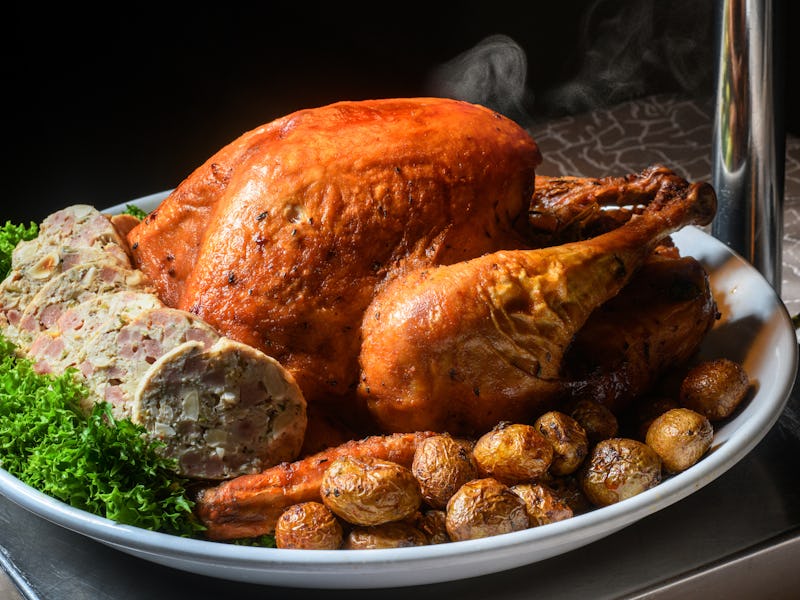Does turkey make you sleepy? The sneaky truth behind Thanksgiving food comas
Your middle school science teacher lied to you.

At many Thanksgiving tables, eager feasters may offer the popular fact that we get sleepy after the holiday meal because of a molecule in turkey called tryptophan. In fact, tryptophan has gotten as close to a household name as an amino acid possibly can. But is the long-standing notion true?
Thanksgiving feasts undeniably leave one sapped, but it’s not the tryptophan. In exploring the chemistry behind the molecule and the effects eating and over-eating has on the body, science explains why tryptophan isn’t to blame.
What is tryptophan?
Tryptophan is one of nine amino acids — a building block of protein — that humans need but can’t produce on their own, so they get it through their diet.
We need tryptophan to synthesize two other essential chemicals. First, it’s the only precursor to the neurotransmitter serotonin, which we associate with feelings of happiness and peace. So, the only way to produce this mood-regulating neurotransmitter is to regularly consume foods with tryptophan. While researchers estimate that only about 1 percent of dietary tryptophan goes toward serotonin synthesis in the brain, its impact is enormous — so huge that the compound has been marketed as an over-the-counter depression treatment, though the science behind this claim is iffy.
Our bodies also convert tryptophan into the hormone melatonin along this pathway, which helps regulate our sleep cycle, digestive processes, and gut motility. This amino acid is also useful because the liver uses it to create vitamin B3 (niacin), which is crucial to DNA production.
We find tryptophan in tons of food, especially those high in protein. It’s likely you’ve consumed milk, cheese, chicken, fish, and egg whites — all of which contain this amino acid — without getting sleepy afterward.
Tryptophan is the closest an amino acid has come to a household name.
Does the tryptophan in turkey make you sleepy?
As a precursor to melatonin, tryptophan might seem like a natural sedative. However, this festive fowl contains no more tryptophan than any other meat, so it’s not the reason for Thanksgiving grogginess.
Our bodies use tryptophan to make the neurotransmitter serotonin, and then the hormone melatonin.
Why do I get sleepy after eating Thanksgiving dinner?
The culprit is feasting on lots of carbohydrates at once. Quickly absorbed, carbs raise blood sugar levels just as fast. However, once they’re completely digested, that will leave the feaster feeling more tired than before. And between hunger signals in your brain reckoning with the actual size of your stomach as it fills, lethargy is a reasonable response.
The American Chemical Society says that as you eat, intestinal cells release a hormone called peptide-tyrosine-tyrosine (PYY), which travels to the brain and binds with receptors that result in a perception of fullness. This feeling is your body telling you that your stomach is full, and if you keep eating, things won’t be pretty.
Paired with a long day of travel and family chit-chat, that’s enough to prepare anyone for an after-dinner nap.
CHECK, PLEASE is an Inverse series that uses biology, chemistry, and physics to debunk the biggest food myths and assumptions.
Now read this: A nutrition scientist reveals the missing piece of the Mediterranean diet
This article was originally published on